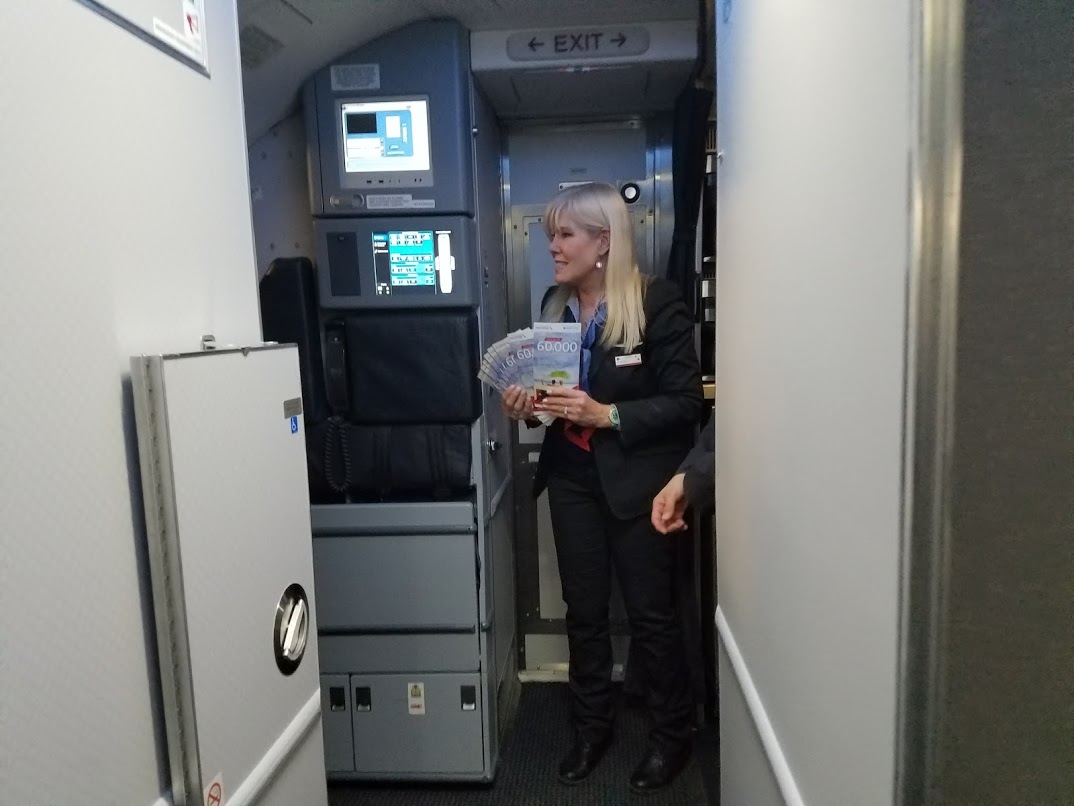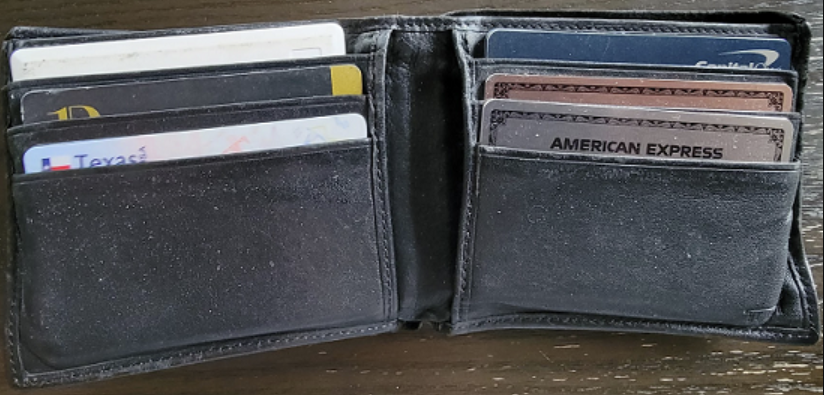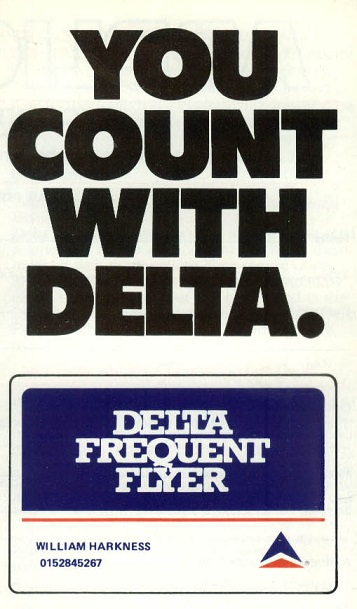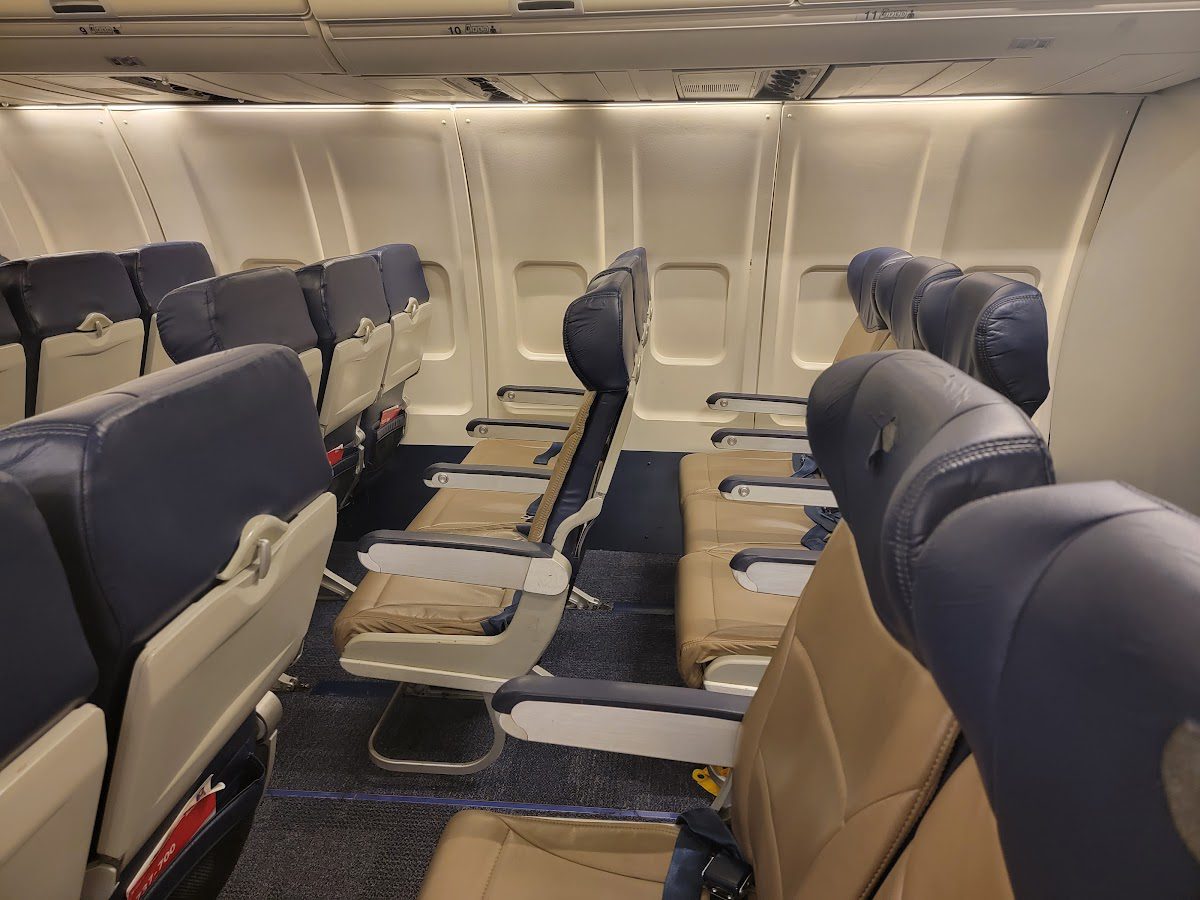Do large airlines’ rewards programs hurt competition? That’s the question that the Biden administration is asking. The Department of Transportation, and the Consumer Financial Protection Bureau under the leadership of an administration appointee, held a hearing that was in part pushed by Senator Dick Durbin (D-IL) who is doing the retail lobby’s bidding by trying to regulate credit card swipe fees. The purpose was to investigate the ‘anti-competitive behavior’ of frequent flyer programs.
Ironically, frequent flyer programs seem to increase airline competition for two reasons.
- Airline seats are in large measure a commodity business, and with the amount of government regulation there’s limited room for product differentiation. Airports are government owned, security screening is provided by the government, and where planes go from push back to gate arrival is dictated by the government. Interiors are constrained by regulation and signed off on by the FAA.
Frequent flyer programs are a key way airlines differentiate their product. Far from being anti-competitive, they were originally created to foster competition.
- Flying makes a card more relevant and acquisition easier. The programs make flying more profitable. That increases the supply of seats and drives down fares.

We also know that there really aren’t significant barriers to entry for an airline to offer a competitive program, and even for banks and others to do so. Spinning up of new programs like Chase Ultimate Rewards and the entry of Capital One and Wells into the transferable points space, plus Bilt Rewards, shows that there aren’t meaningful barriers to competition.

There are bad practices within airline loyalty, however. And there’s little that consumers can do about it even if such practices border on fraud. But that’s the result of government policy!
- Successive Supreme Court rulings held that consumers basically can’t sue frequent flyer programs for duties of good faith and fair dealing.
- That’s left the Department of Transportation as sole regulator, with airlines immune from suits for anything other than violating their own terms and conditions
- But DOT’s own Inspector General found that the agency improperly ignored complaints about the programs.
The Airline Deregulation Act, successful court decisions, and DOT inaction has meant loyalty programs have little legal liability to customers. Now the DOT wants to know whether their own inaction has been abused?

What’s weird though is the focus on anti-competitive behavior in frequent flyer programs because that’s about the only charge that falls totally flat.
The smallest airlines say the big airlines are anti-competitive but of course they do because they want the government to crack down on competitors, and the tools they use to compete. Spirit Airlines benefits if they don’t have to offer a compelling value proposition in Free Spirit.
Discussion about the topic was driven by Spirit chief commercial officer Matt Klein, who said that consolidation, with American, Delta, Southwest and United controlling approximately 80% of the domestic airline market, drives flyers to Big Four loyalty programs.
“Customers sort of get trapped,” Klein said. “They’re in cities dominated by certain airlines, which means you have to fly those airlines in those cities. That then gets you into these loyalty programs, and that gets you hooked into [thinking], ‘Well, I guess I need to fly American’ or ‘I guess I need to fly United.'”
…Executives for Allegiant and Breeze agreed with Klein, while emphasizing measures they’ve taken with their loyalty and credit card programs to counter the Big Four’s advantages.
This is such a strange take.
“The notion that a frequent-flyer program is a tool to stifle competition is pretty silly,” Gary Leff, who writes frequently about rewards programs on his View From the Wing blog, said in an email. “There’s little barrier to entry in offering an attractive program. Not every airline is smart about doing so, however.”
Spirit, Leff pointed out, has benefited heavily from its Free Spirit loyalty program, including leveraging it for $1.1 billion of borrowing.
Still, he said, Free Spirit pales in some ways to other airline rewards programs, including having points that expire after 12 months. Points don’t expire at several other U.S. carriers, among them giants Delta, Southwest and United.
“Any relative disadvantage is of their own making,” Leff said. “Sure, they’re an undersized airline. Grow the airline, and its relevance in key markets, and they can grow the value of their loyalty program.”
Customers may choose to fly United out of Denver instead of Southwest because they prefer United’s first class product, or its club lounges. Or they may prefer the bundle that Southwest offers.

But there’s nothing inherent in size of a loyalty program that creates market dominance. Spirit has something of a me-too program, having copied some parts of what Frontier has done. Historically Spirit’s program has been frankly awful. Compare Spirit’s points expiration to United, Delta, Southwest and JetBlue where points don’t expire.
Small programs can win business! Frontier was the first airline – before American – to make all cobrand card spend count towards status. This fee-based airline waives nearly all of its fees for top customers. If you live in a city Frontier serves heavily, their program is actually really attractive for many.
They don’t have global points-redemption opportunities like United or Delta, but this too is a choice. Small airlines partner with larger ones worldwide, and AirTran used to let you use their credits on other airlines – for twice the number of credits as travel on their own planes they’d buy you a ticket on another airline.
One thing we see in hotel programs is that the smaller they are, the more work they need to do on the loyalty side to win business. Hyatt has to offer a better program that Hilton, IHG and Marriott because those chains are ubiquitous. You need to work to stay loyal to Hyatt.
If you’re a U.S. consumer you’ll get great value out of foreign loyalty programs, and banks and hotel programs make points in lucrative foreign programs accessible to U.S. consumers. Alaska Airlines is smaller than the ‘big four’ but many consider it to have a superior loyalty program (and that was true even before Alaska joined the oneworld alliance). Build a better program, attract customers, and there’s the opportunity both to grow the competitiveness of the airline and to earn more through co-brand credit card reach.


Joe Biden and Dick Durbin they destroy everything in their path. This is dumb. I don’t see them investigating Kohls Cash or Dunkin rewards or… It’s about them lining their bank accounts and pretending they care about people in an election year.
Gary,
No loyalty program will make up for a bad product! Spirit is one airline I will never fly again. There are others I avoid and book around.
I use loyalty programs to maximize the value of the airlines and hotels I use.
The only thing ruining competition is bad competitors products.
I’ve carefully followed frequent flyer programs in America for decades and I’m hard pressed to think of a single instance where they could be described as “anti-competitive.” There’s no doubt that tens of millions of Americans — myself included — have been able to travel we could not have undertaken without these programs. And they don’t create barriers to entry. No one in the history of aviation has said “Well, I’d like to start an airline, but I can’t compete with Big Airlines’ frequent flyer program.” I suppose you could argue that Big Airline A MIGHT have a harder time breaking into Big Airline B’s turf due to frequent flyer loyalty, but this is a tiny part of why big airlines tend to dominate their hubs. All in all, I can say with 100% confidence that frequent flyer programs are almost all gain for consumers with very little downside.
Step 1. Start taxing any rewards earned while flying for work.
Let’s hope the day is coming!
The argument I am seeing more and more is that the major loyalty programs are big profit centers, which allow the big 4 to effectively price their actual products – flights – lower than they otherwise would have, limiting the ability to the Spirit, Frontier, etc to compete on price. Basically, the Deltas of the world are dumping cheap airline capacity in the market, hurting the competition, subsidized by the loyalty programs – and the smaller airlines can’t compete with their own loyalty programs for whatever reason.
They actually may be right about the airline pricing part of it – but consumers are all still benefiting, so I don’t really see a harm.
I’m from the government and Im here to help.
what will happen is the loyalty programs will get watered down to the point of being useless. the airline will not make money from the banks by selling points. ticket prices will have to go up or else some airlines like AA will be in deep trouble.
once again a Democrat program designed to “help” the poor will back fire and end up hurting the poor. its only the optics of help that they care about
The actions of the DOT and CFPB provide yet another reason to toss the current administration like it was week old sushi?
FF miles & rewards used to awesome in the 80’s & 90’s But since the Accountants have taken over during the Great Recession, not so much.
I am a million miler on AA & probably have flown that many on Delta.
But now it’s whoever has the non-stop & best price wins. FF awards are impossible to use unless you’re on an Asian/Mid-East Airline. And most Airline Lounges are the same as going to TGI Fridays.
The US Airlines seem to be just Greyhound Buses that fly. It’s amazing the different flight experience you get with an Asain/Mid-East Airline compared to the daily grind on US Carriers…
Every word that comes out of this administration is dishonest and disingenuous. Whatever they say their intent is, you can bet the end result is the exact opposite.
Biden Regime = FAILURE
The retail industry is right about the whole range of card fees in the US, and your argumentation conflates FF programs with credit cards (point 2: “Flying makes a card more relevant”). When the fees and interest on those cards have made them so ridiculously profitable that we have ‘thought leaders’ detailing how to exploit inefficiencies in the system so that the customer spends more time on a transaction, the party being paid gets less money, and the middleman takes a huge profit and repays some of that to the customer in the form of completely unregulated scrip.
And those of you complaining about regulation seem to have missed how regulation works: either the companies involved in the racket set up, with the government’s blessing, their own regulations, or the government applies some watered-down rules that largely serve the oligopoly in control.
FF programs aren’t anticompetitive for the miles they offer, but for the improved customer experience frequent flyers get. In effect, they ensure that, among passengers paying the same price, some will get a measurably superior product. With some airports having minimal competition (fortresses), the customers who travel the most are going to be on that FF program, and they will also be the ones who set the corporate travel policy. Now, with credit cards doing the work, it doesn’t even matter: I have one airline in my wallet, and that’s the one I fly with.
Just because we play the game doesn’t mean that we shouldn’t recognize that it’s inefficient, parasitic, and, on the macro level, damaging to the economy, competition, and the environment. Whether it’s worse than the tax-preparation industry is open to discussion.
As if the B1den admin had nothing better to worry about. First ticketmaster and now this.
Whutta bunch of clowns.
Secretary of Transportation Butthead wants to tax miles so that the rich pay their fair share. He wants to punish them.
I’m all for getting rid of loyalty programs. We’re not hamsters and we need to stop behaving like one. Choose according to value, service, convenience, not in perpetual pursuit of progressively worth-less points and status’s that get underused or poorly used once achieved thereby massively profiting these hamster wheel manufacturers.
If you’re a startup airline, how exactly do you compete with a progrsm that offers award tickets to the Maldives (or even Hawaii)??
Yes, these programs are HUGELY anti- competitive, designed to effectively hobble new entrants.
While it’s nice that we have an administration that actually tries to help people a little caution might be advisable. One change that would be helpful would be to make the date you earn your miles determine the award price. That would insulate passengers from sudden devaluations.
You are totally protecting your turf and source of income from pushing credit cards. And totally wrong. Great spin. LCC getting taken out by big airlines who have the income from credit card companies. It is all about money from frequent flyer programs and credit card companies. Gary and big airlines are in lock step here… benefiting.
I do not see why airlines are allowed to sell miles but not the customers/consumers. What airlines/hotels/etc. do is that they print their own currency (that they smartly convert into hard cash) but then allowed to devaluate that currency any way they like. This could be viewed as a direct interference with the function of the US Treasury.
However, the airlines and other companies should be allowed to reward the customers any way they like. Now, if you are forming an alliance between several companies to reward their customers, it can be viewed as an anticompetitive practice. Thus, nobody will be going after Kohl’s cash but if that program captures by colluding with other retailers, let say, 20% of the market of whatever goods Kohl’s is selling (I haven’t been in Kohl’s for 10+ years), they could be the focus of such an investigation.
The problem with Biden/Durbin/etc. is that their efforts are misdirected because they will not help the consumers. Hotels and airlines are raising prices not because of the loyalty programs but because their labor costs (minimum wage for hotel workers, environmental regulation, jet fuel, higher cost of energy and insurance, financing) are all rising. Easing up inflation and freeing up competition would have much more significant effect than taxing and regulating frequent flyer programs. For the latter, the government would have to create another regulating body and someone would have to pay the salaries of those bureaucrats and those at the companies working on compliance paperwork.
There are now but two beneficiaries and until the LARGE participating banks complain, there will be no actions taken. And the other major beneficiary is NOT the person collecting miles/points. IMHO.
FF programs give to people who couldn’t afford the cash price the opportunity to fly in comfort. Particularly important for long trips. Having a shower on a 16 hour flight to Dubai, enjoying the wonderful service on SQ are just 2 of the examples where you can feel wealthy for a day. Gary correctly notes that this is a covert campaign to benefit one sector at the expense of many consumers.
@Quentin – couple questions to ask are:
– FF programs are the main, sometimes the only, profit generators for the major airlines. How can that be if these programs are actually proving outsized value to its customers?
– airlines without meaningful FF programs often offer flights at fraction of the price, even with all the extra fees, of the major ones with extensive FF programs. If those programs were eliminated and consumers then chose based on the remaining metrics, how much would airfares fall and in turn benefit the consumer?
Alex77W has an excellent point. If I understand correctly the playing field should be leveled by allowing the holder of the points/miles account to also sell the “asset.” That should make for an interesting marketplace.
Fitsair https://fitsair.com/about-us/ is a startup flying to Maldives.
If you’re unhappy about regulated but independent airlines, then you are free to choose quasi-government agency Amtrak, for your domestic travel.